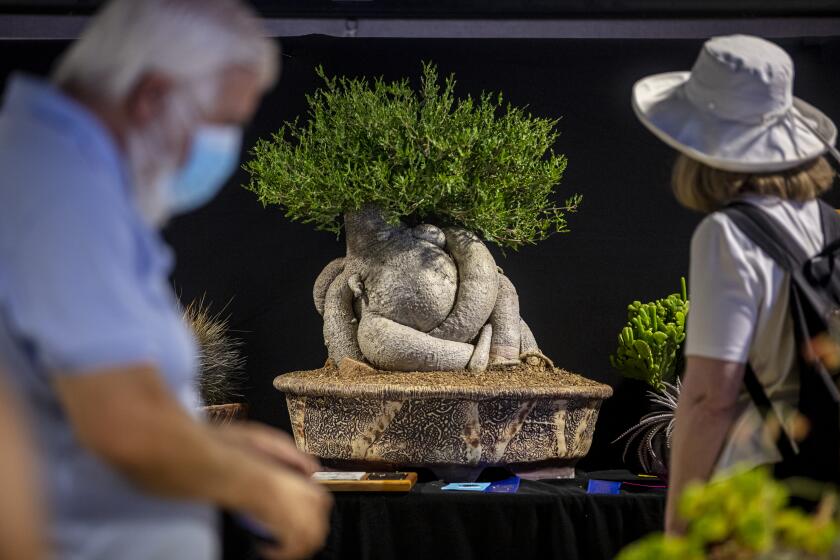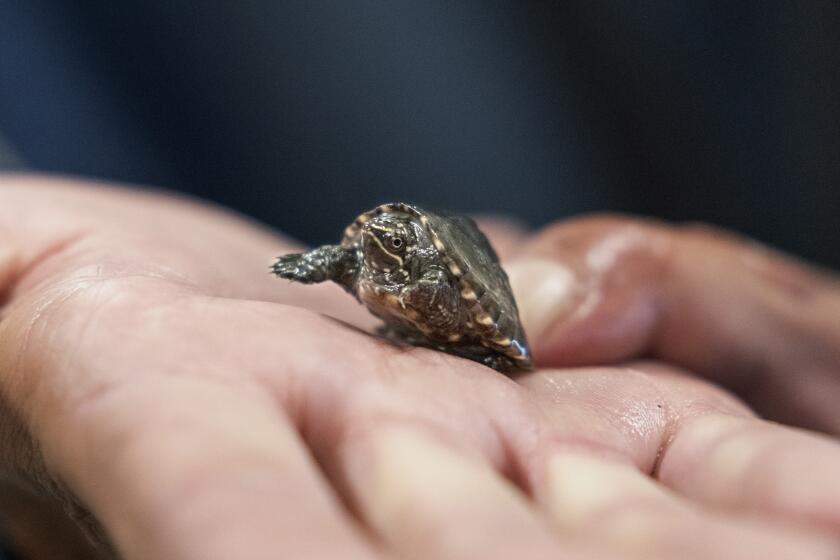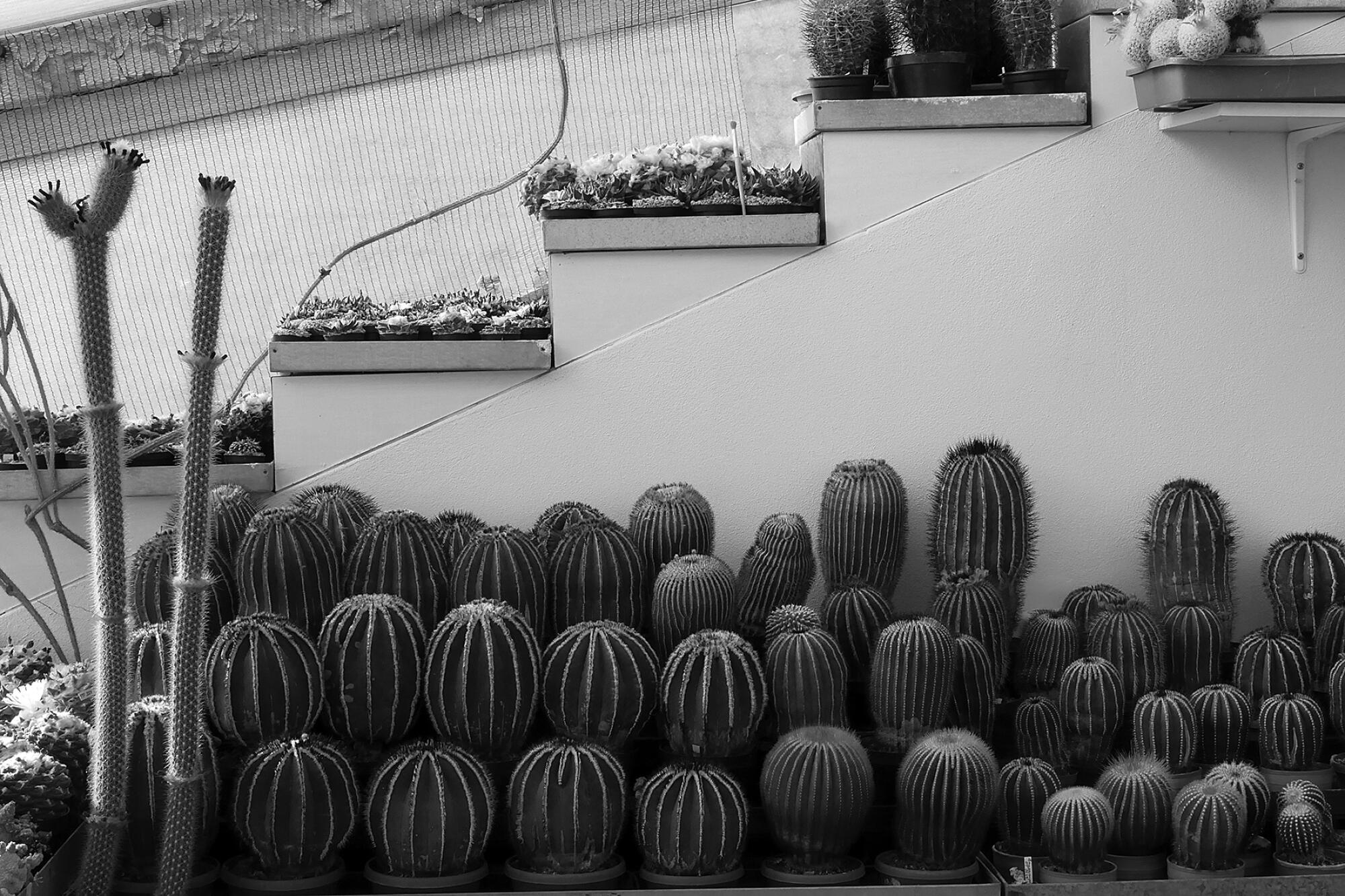
- Share via
On the Shelf
The Cactus Hunters: Desire and Extinction in the Illicit Succulent Trade
By Jared D. Margulies
University of Minnesota: 392 pages, $25
If you buy books linked on our site, The Times may earn a commission from Bookshop.org, whose fees support independent bookstores.
In 2022 a South Korean man, Byungsu Kim, was sentenced to two years in federal prison for poaching more than 3,000 succulent plants from state parks in Northern California. The conviction was a rare example of efforts to legislate and prosecute endangered-plant poaching. It also put a spotlight on a global trade and obsession — think of Susan Orlean‘s “The Orchid Thief” on a worldwide scale, and with a pricklier quarry.
In “The Cactus Hunters: Desire and Extinction in the Illicit Succulent Trade,” Jared D. Margulies discusses the Kim case (in which he played a small role) and the wider phenomenon of cactus and succulent poaching and collecting. In the process, he explores rumor-mongering (no, the plants aren’t great air purifiers), the curious love of cacti behind the Iron Curtain and the nature of desire itself. In his conversation with The Times, edited for space and clarity, Margulies spoke about the book via video from Tuscaloosa, Ala., where he’s an assistant professor of geography at the University of Alabama.
There were 118 exhibitors showing 1,300 strange and wonderful plants as the 35th Inter-city Succulent and Cactus Show and Sale made up for a lost year this past weekend.
Where did your own interest in cacti come from?
A lot of the collectors I spent time with, if you push them and ask, “Where did this all really start for you?” They’ll say something like, “When I was 11 or 12, my mom gave me a cactus.” That’s true for me as well. But my brother threw that cactus out the window about a year after I got it. Maybe there’s some over-determined way to be like, “Oh, did my desire all come down to questions about castration anxiety manifested in a cactus chucked out the window by my older brother?” Maybe this was a latent interest I’d had for a long time, and I just didn’t know.
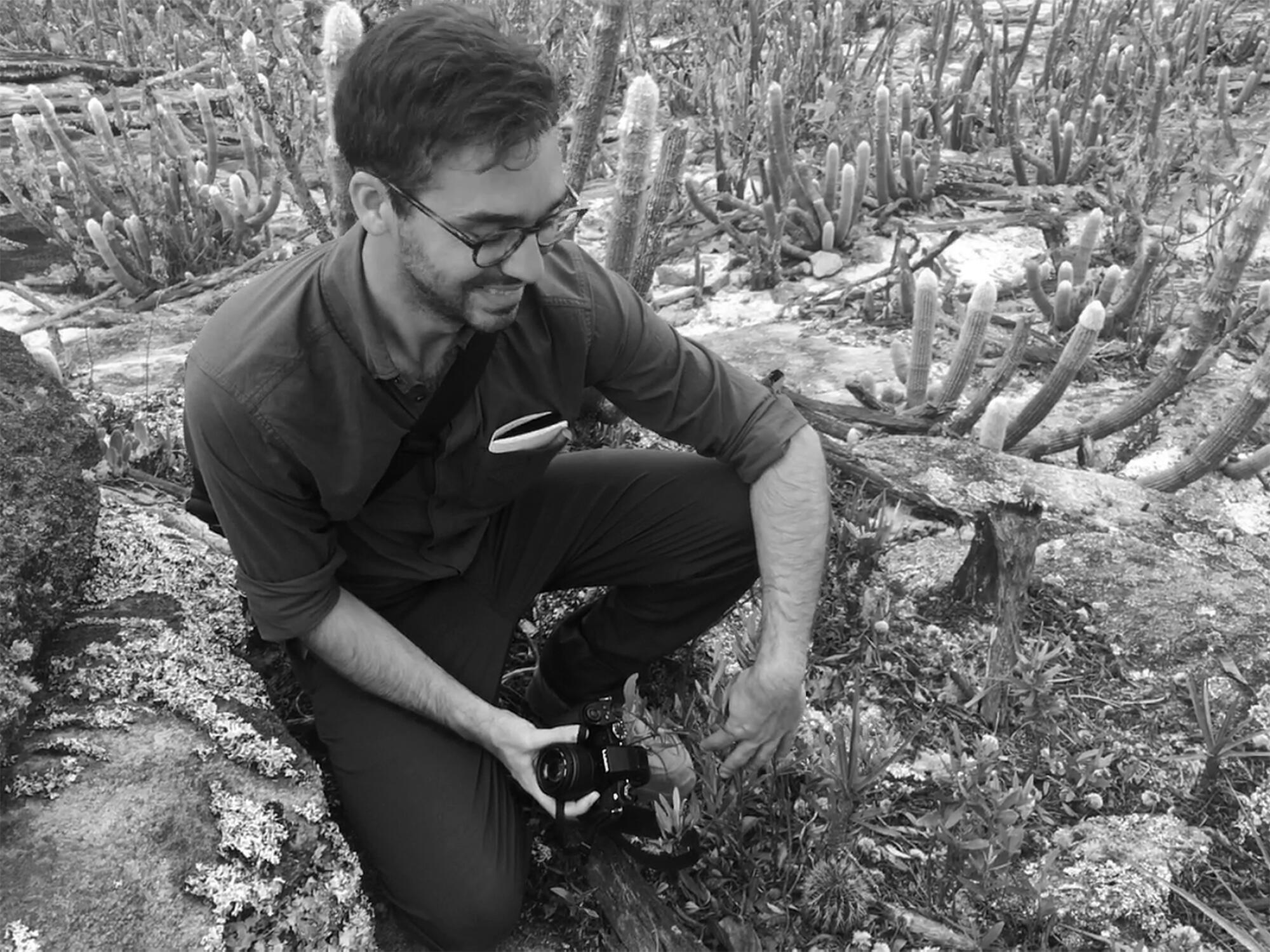
You traveled to California, Brazil, Mexico, Korea and the Czech Republic for this book. How widespread is this phenomenon?
In South Africa now there’s been an explosion of illegal harvesting of a number of different kinds of succulent plants. It is a really serious problem — a lot of them are probably now extinct in the wild. I visited with South African authorities and saw literally thousands of plants in cardboard boxes that had been caught and confiscated from illegal harvesters. There’s a lot of demand in East Asia, the U.S. and Europe. Peru and Chile are also huge sites of illegal harvesting for cacti right now. It really is quite global.
Has Byungsu Kim’s conviction signaled a change in law enforcement’s response to succulent poaching?
The conviction was really serious, and that was quite intentional. They were trying to put would-be harvesters on notice that the U.S. was going to start taking plant poaching seriously as a kind of wildlife crime. I think that it’s always a struggle to get people to care about plants. But I’m doing a project right now on illicit harvesting of Venus flytraps in North Carolina, and as of 2015 it’s a felony to take flytraps from public lands. I’m not really a fan of criminalization as a response to these trades. But you do see more attention being placed on it than 10 years ago.
In a climate crisis that feels huge and hopeless, these eight books — essays, fiction, memoir and poetry on the wild — will help you focus on small things
Despite your stance against criminalization, you were asked to serve as an expert witness to determine the cost of Kim’s poaching in Northern California — about $150,000. Would you do it again?
I don’t know if I would. It was an uneasy learning experience for me. What Kim did was really bad. It caused an enormous amount of harm. So it’s not because I have any sympathies for him, but I don’t necessarily think criminalization is the right approach.
So what is?
There has been some work done to think about forms of rehabilitation that actually get people developing empathy around their destructive activity. A lot of these people who are caught doing this are experts about a lot of these plants. It’s interesting to speculate on how that might be utilized toward conservation’s benefit rather than detriment.
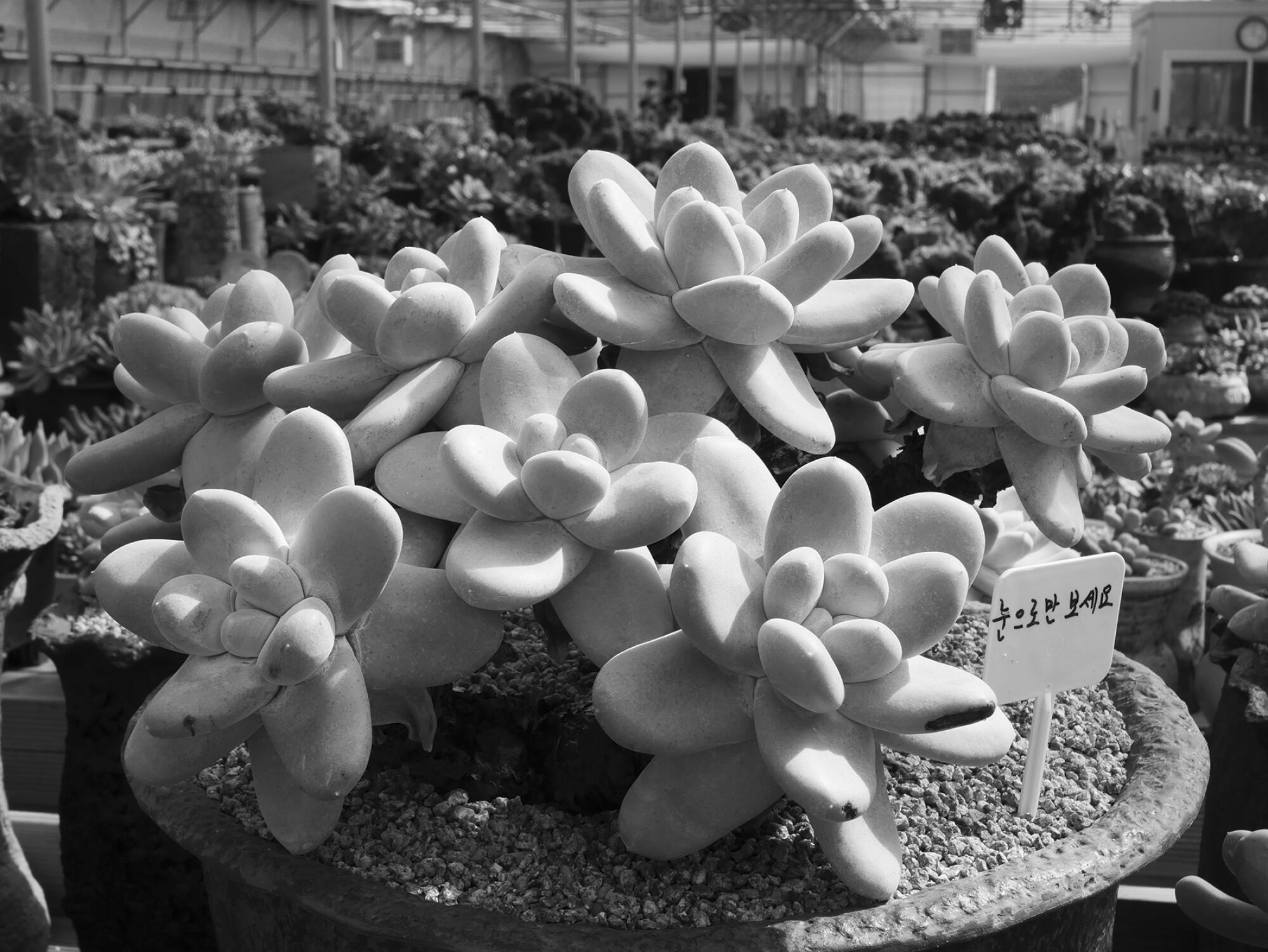
The objects of collectors’ obsessions seem to vary. Sometimes it’s their “cuteness,” or their supposed healing powers, or their wild-grown status.
I think the thing that’s common is the arbitrariness. There’s a real focus on aesthetics, but aesthetics change. Right now, for instance, there’s been a lot of focus on Southern African succulents. There’s definitely a lot of interest in those species in Korea right now, but when you start asking people about where the plants come from, or anything about their history, or who named them and collected them, I’ve yet to meet any collectors in Korea who care at all about that kind of stuff. Whereas in the U.S. and the U.K., people are obsessed with provenance and lineage. “This is the fourth generation progeny of a plant that was brought over by this collector in 1807.”
Susan Orlean went on a drunken Twitter whirlwind Friday night — or was it real? Here’s what the author tells us about her Twitter escapade.
You write about Karl May, a 19th century German author of adventure stories about the Southwest, though he never actually went there. Why were his stories so enchanting to European cactus collectors?
He’s brilliantly captured this very classic fantasy of the Wild West. He delivered a sense of exoticism in the landscape but also the people. He reproduced these classic tropes of the white westerner who is actually on the good side of the Indians against the villainous foes. So it produced this sense of camaraderie that really resonated for Czechs, who also saw themselves as oppressed people during communist rule.
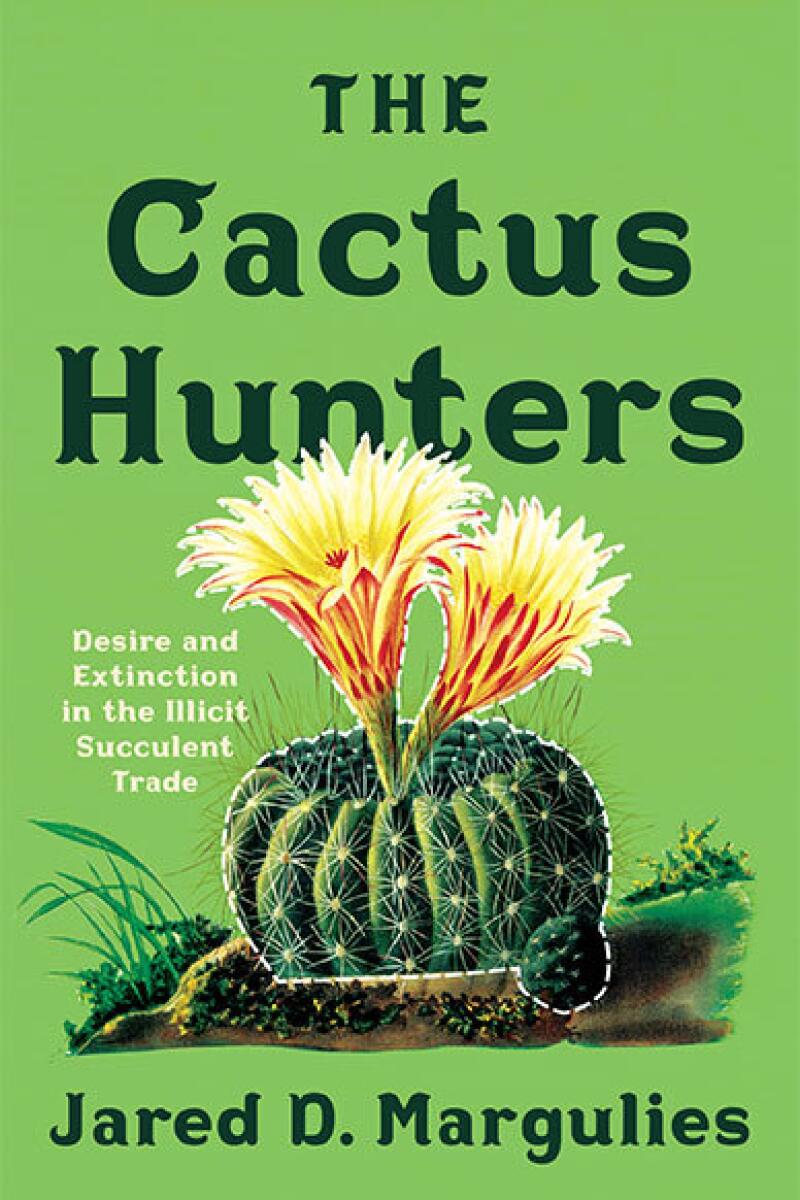

“The Cactus Hunters,” by Jared D. Margulies (University of Minnesota Press/Bryan Hester)
In the book you mention observing a plant and catching yourself saying, “If only we could ask it what it needs.” Having researched and written this book, do you have an answer to how a plant might respond?
I didn’t expect to learn about psychoanalysis from a cactus. But we can pay attention. So I think in saying, “If only we could ask what it needs,” I have to be asking, “How can we pay attention to these ecologies that in many ways we still barely understand?” I think that’s a practice people can bring to their lives. I think about all the plants I’ve killed because I failed to ask adequately what it needed.
Athitakis is a writer in Phoenix and the author of “The New Midwest.”
More to Read
Sign up for our Book Club newsletter
Get the latest news, events and more from the Los Angeles Times Book Club, and help us get L.A. reading and talking.
You may occasionally receive promotional content from the Los Angeles Times.
